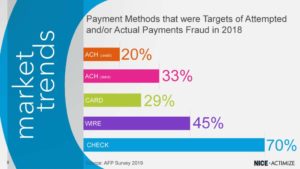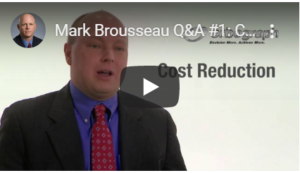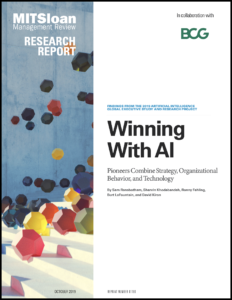OrboNation Blog
The unprecedented worldwide coronavirus pandemic has created a new set of values for people around the world. Toilet paper is a precious commodity (in spite of a robust supply chain, it should be noted); it is possible to be productive working from home (a good internet connection is a lifeline to remote meetings), and; you…
Read MoreCongress passed a $2 trillion stimulus bill — the largest in United States history — that promises to revive a coronavirus-stricken economy. These are payments that will be sent directly to Americans, with many adults getting $1,200. For every qualifying child age 16 or under, the payment adds an additional $500. The plan is for…
Read MoreOrboGraph’s dynamic webinar entitled Change is Inevitable – How Will You Respond? — co-hosted with NICE Actimize — provided fresh insight into the nature of fraud. The webinar provides information and scenarios to show how fraudsters are becoming more sophisticated in their methods of committing fraud and how incorporating new technologies like Artificial Intelligence and…
Read MoreUse of Personal Checks: Drilling Down to “Who and Why” A report by the Federal Bank of Atlanta reveals some useful trend information regarding check usage in the United States. The report is described as “a snapshot of U.S. consumers’ use of paper checks in 2017 and 2018, combining data from the 2017 and 2018…
Read MoreA few months back we wondered whether Santa would take cryptocurrency – this was in reference to a rather bleak Huffington Post article called “The Bitcoin Hoax“. Pessimists aside, ever since Bitcoin appeared, the ever-growing ecosystem of cryptocurrency has continued to expand and spawn new varieties — some that sound like sci-fi movie titles and…
Read MoreThe array of digital payment vehicles available is dizzying — Google Pay, Apple Pay, PayPal, Venmo — the list is long. Still, checks remain popular. And, it turns out, a better payment instrument when it becomes necessary to stop payment due to error or suspected fraud! MoneyWise describes easy step-by-step directions for canceling or stopping…
Read MoreOver the past decade, we have seen a tremendous evolution in healthcare, particularly in healthcare payments and revenue cycle management. But how far have we come since 2014? In 2014 we sat down to talk to Mark Brousseau, President of Brousseau & Associates, to get his perspectives on the challenges and opportunities facing healthcare payments…
Read MoreFor all the talk of Artificial Intelligence capabilities and their value to organizations and industries of all sorts, it should be noted that, according to the 2019 MIT SMR-BCG Artificial Intelligence Global Executive Study and Research Report, nine out of ten companies have made some investment in AI, but 70 percent said they have seen…
Read MoreMIT Sloan Management Review and Boston Consulting Group recently collaborated on a white paper exploring AI as a tool entitled Winning With AI (you can download the paper HERE). Subtitled Pioneers Combine Strategy, Organizational Behavior, and Technology, the white paper is a nice encapsulation of their global survey. Conducted in Spring 2019, the survey attracted…
Read MoreAccelerated funds availability allows depositors to instantly access the money they deposit via check. That way, there’s no waiting period for the check to clear and no penalty if the check writer’s account has insufficient funds. An article at BAI Banking Strategies by Victoria Dougherty, director of Payment Management Solutions, Fiserv, opens by wondering why…
Read More








